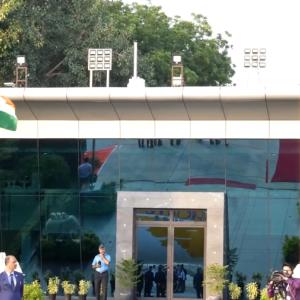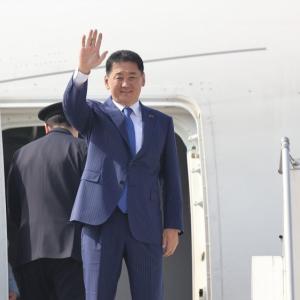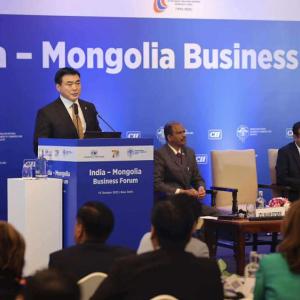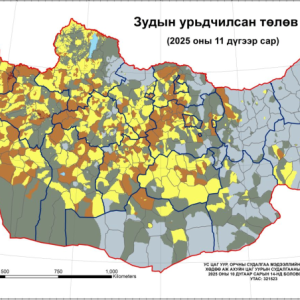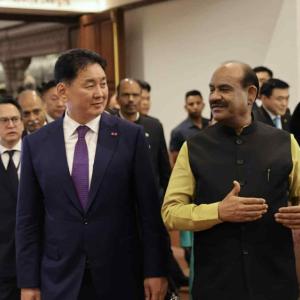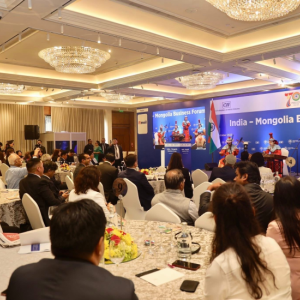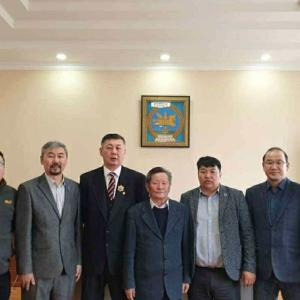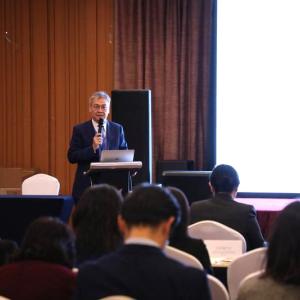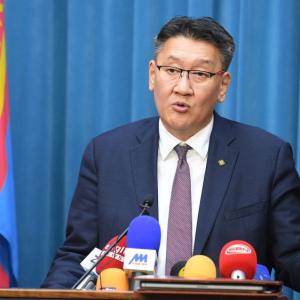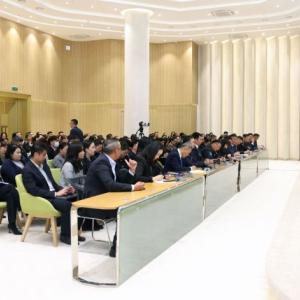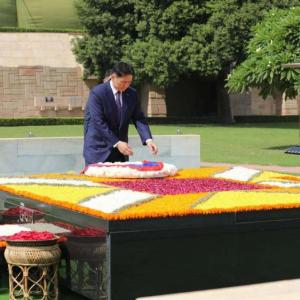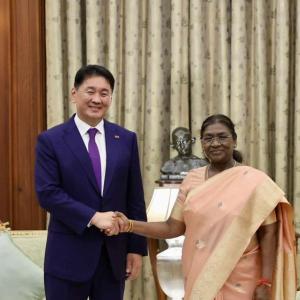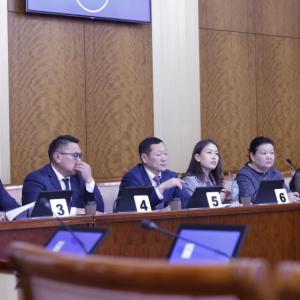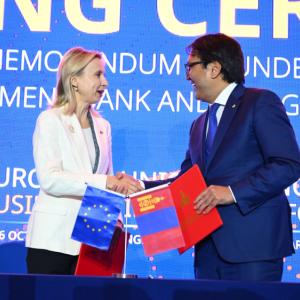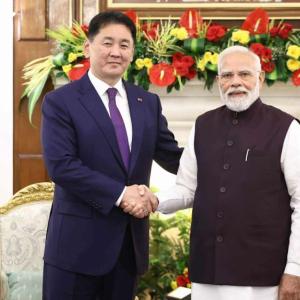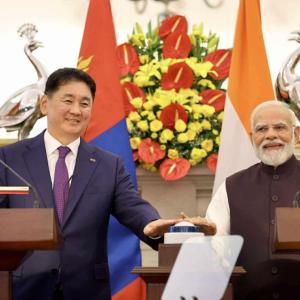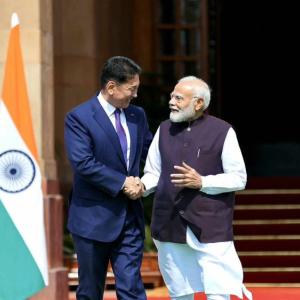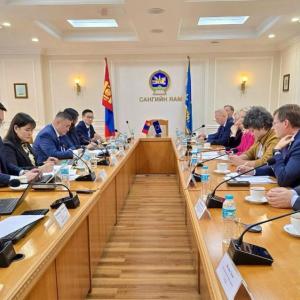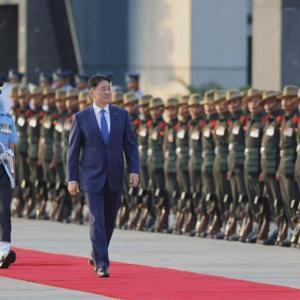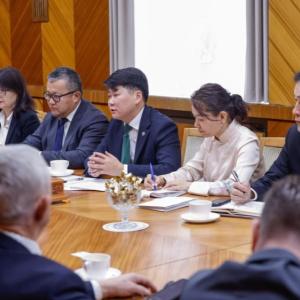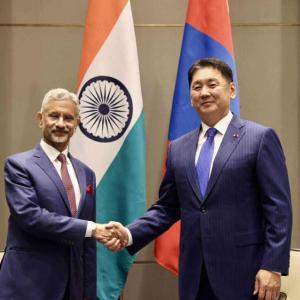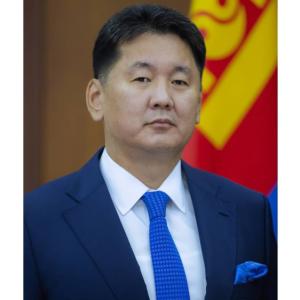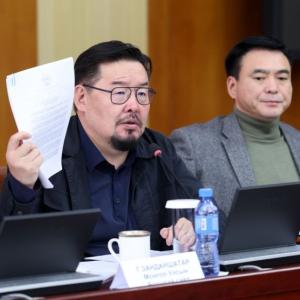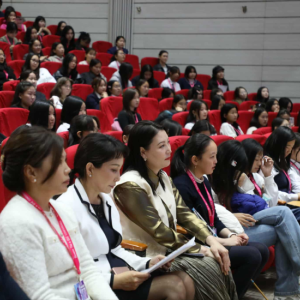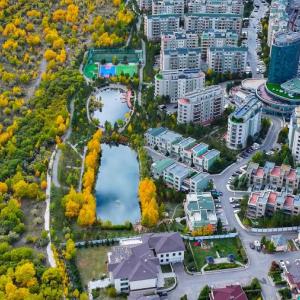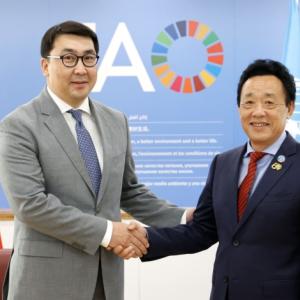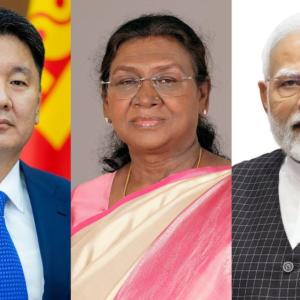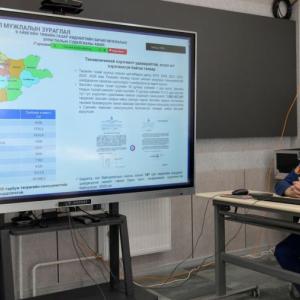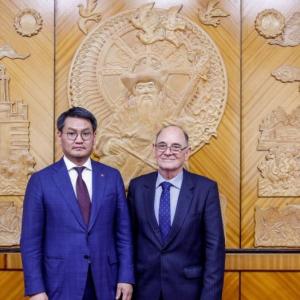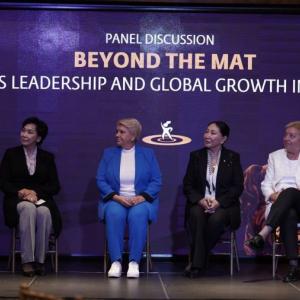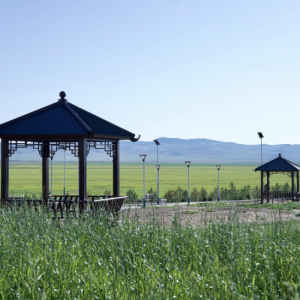Seventh Meeting of the Asia-Pacific Parliamentarian Forum on Global Health Commences
Politics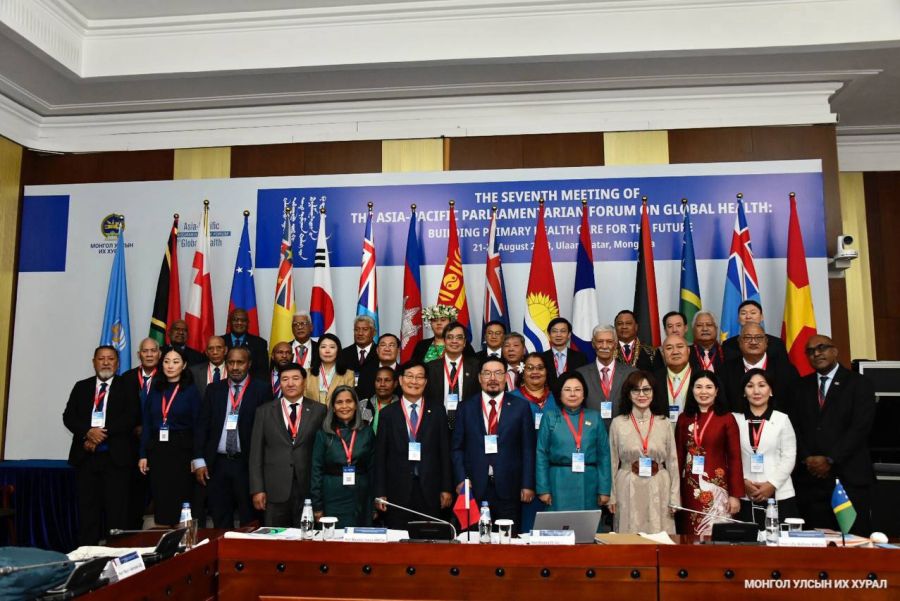
Ulaanbaatar, August 21, 2023 /MONTSAME/. The
Seventh Meeting of the Asia-Pacific Parliamentarian Forum on Global Health
under the theme "Building primary health care for the future" has commenced in Ulaanbaatar, Mongolia today
on August 21, 2023.
Over 70 delegates
including 15 parliamentarians, speakers and Ministers of Health from the
Republic of Vanuatu, Socialist Republic of Vietnam, Kingdom of Cambodia, Cook
Islands, Republic of Kiribati, Lao People’s Democratic Republic, Mongolia,
Niue, Papua New Guinea, Independent State of Samoa, Solomon Islands, Republic
of Korea, Kingdom of Tonga, Tuvalu, and Republic of Fiji, and World Health
Organization are attending the Meeting.
The Seventh Meeting of the
Asia-Pacific Parliamentarian Forum is chaired by the Chairman of the
State Great Khural (Parliament) of Mongolia. Below is the opening remarks
delivered by the Speaker G.Zandanshatar at the opening ceremony.

Honorable Members of
Parliament of countries of the Asia-Pacific region,
Dear WHO Guests and Delegates,
Ladies and Gentlemen,
Greetings and Welcome to
Mongolia.
On behalf of the State Great Khural
of Mongolia and myself, I am sincerely grateful for hosting in Mongolia the
seventh Asia, Pacific Parliamentarian Forum on Global Health where over half of
the world's population resides in countries in this region.
All of you would agree that
the ultimate goal of any country's development is for the well-being, healthy
and satisfying life of the population, and health is the basic measure of
progress of human development.
Currently, discussion on
vaccines, obesity, and tobacco control by the UN Security Council and World
Economic Forum is progressing; a month later three high-level meetings on
tuberculosis, universal health coverage in health services, and readiness for
the potential risks of a pandemic by the 78th World Health Assembly are
upcoming. They indicate that health issue converts to a leading direction in
collaboration in the international arena rather is being a matter of one
sector, and it stretched out one country's boundary.
Hence, countries are aiming to
build a health system based on primary health care and services that coincided
with principles of unity, equality, and justice, and make services accessible
to all.
Globally, under this purpose,
significant improvements in increasing availability of maternal and childcare
and services, and prevention of communicable diseases been occurred over the
passing years.
However new challenges such as
population aging, the 'silent plague' of non-communicable diseases, climate
changes, the impact of natural disasters due to global tectonic transition, and
societal, economic, and demographic rapid changes are appearing. They result in
an increase in expenses and demand for health care and services.

For challenges are taking
unprecedented scales never seen before and becoming more complicated, political
leadership, innovation, and whole society partnership are essential to address
them. We need to review the organization of health care and services,
financing, and resource allocation to make it more accurate to restrict the
growth of health expenditure, protect citizens from health-induced financial
risks, and prolong population life expectancy.
We must accept primary health
care and services as the most efficient approach of the development, which
requires a substantial amount of investment, and engagement of all sectors of
society rather than a cheap package of care and services dedicated to
low-income populations. Directing legal and policy reform is our duty as
parliamentarians.
The State Great Khural of
Mongolia is supporting health sector reform, increasing the financing of care
and services, reflecting health in policies of all sectors, and strengthening
inter-sectoral collaboration as its' core goal. The COVID-19 pandemic for three
continuous years had shown its' necessity sufficiently for us. The State Great Khural
of Mongolia organized a wide range of response measures against the pandemic
promptly, and by approving the Law on Prevention, Combat, and Reduction of
Social and Economic Impacts of COVID-19 in April 2020 became one of 32
countries who had endorsed an independent law.
It resulted in significant
advantages by enabling the legal environment to organize prompt response
actions, to make budget amendments to the operating cost of the health sector,
and to carry out coordination between chief finance officers, and between asset
and operating cost expenditure.
Although World Health
Organization declared end to the pandemic threat three months ago, our country
has started early screening among the total population to address existing
health consequences of COVID-19, and we believe that it can be a model at a
regional level.
 Ulaanbaatar
Ulaanbaatar









